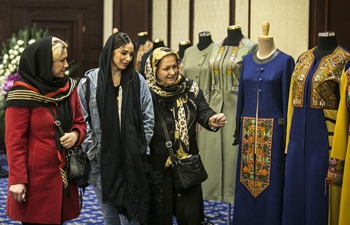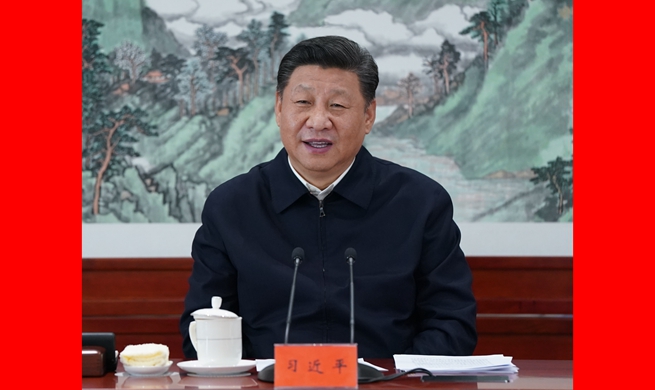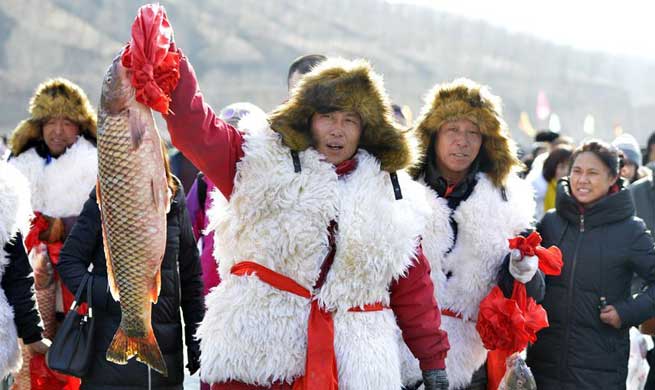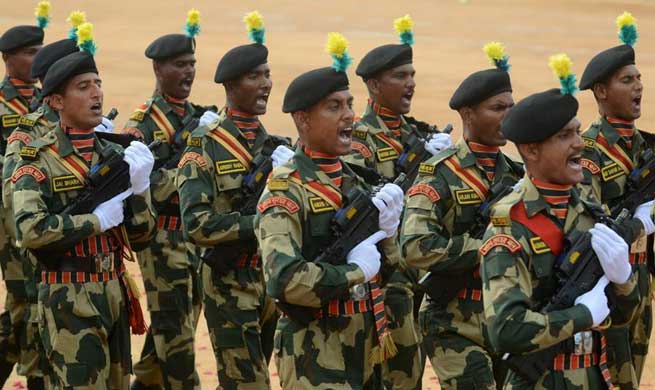by Abdul Haleem
KABUL, Jan. 27 (Xinhua) -- The U.S. talks with the Taliban to find negotiated settlement for the Afghan crisis and end the country's costly and prolonged war entered the sixth day on Saturday and the crucial dialogue may continue.
A delegation headed by U.S. special envoy for peace in Afghanistan Zalmay Khalilzad met Taliban representatives three times from November to December 2018 and the fourth round of talks between the two sides begun on Jan. 21, according to the local media.
The media reports suggest that the White House has agreed to withdraw its troops from Afghanistan and the Taliban group in response accepted not to allow the hardliner Islamic State (IS) and al-Qaida network to operate in the country.
The Taliban has also reportedly agreed to observe ceasefire if the U.S. administration announces a timetable for the pullout of its troops from the war-battered Afghanistan.
However, Afghan experts slam the ongoing U.S.-Taliban talks in the absence of the Afghan government and regional stakeholders in Afghanistan as a "blunder," believing that the talks will not deliver results unless the genuine interests of Afghanistan's neighboring countries are ensured as well as with agreement of the Afghan government.
"The ongoing talks in Qatar won't yield results because the government of Afghanistan has been bypassed from one hand, and from the other, the talks are going with the Taliban faction of Mullah Haibatullah Akhundzada and other factions have been overlooked," political analyst Dad Mohammad Anabi told Xinhua on Saturday.
According to the expert, a major faction of the Taliban is led by Mullah Akhundzada while others including the faction headed by Mullah Rasoul Akhund are also active in Afghanistan and enjoying support from certain circles.
The observer who is also the editor-in-chief of the state-run newspaper the Daily Islah also doubted if anyone could guarantee the IS and al-Qaida outfits halt activities in Afghanistan.
In addition to the Taliban, IS and al-Qaida network, there are more than a dozen militant groups including Lashkar-e-Tyeba that preach extremism and terrorism in Afghanistan, the analyst said, warning the groups could pose threats to the whole region, and the possible U.S.-Taliban peace deal cannot curb the extremist groups.
The expert noted that Afghanistan signed the Bilateral Security Agreement (BSA) with the United States in September 2014 which allows 12,000 strong U.S. and allied troops to stay in Afghanistan to help train and support Afghan forces in the war on enemies.
"If the U.S. exits the BSA and pulls out troops from Afghanistan it will tarnish its image globally, especially among its allies. The fledgling Afghan security forces will be divided on ethnic basis and eventually the country's factional fighting in the 1990s will resume to turn the country into Yemen-like chaotic situation," the analyst said.
According to media reports, U.S. President Donald Trump has decided to drawdown its troops by half and withdraw some 7,000 out of the 14,000-strong forces stationed in Afghanistan.
"The U.S. invaded Afghanistan in late 2001 to end terrorism and bring about stability in the country but the decision has proved counter-productive and the insurgency has increased. Therefore, the U.S. should fulfill its responsibility to rethink about the withdrawal," another analyst Shamsul Haq Arianfar told Xinhua.
Recalling the former Soviet Union forces withdrawal from Afghanistan in 1989, collapse of then President Mohammad Najibullah's regime in 1992 and eruption of fighting among political and ethnic groups for power, the expert feared that the U.S. forces' pullout could led to fighting among Taliban rival groups, IS, al-Qaida and emerging warlords.
"It is said that 20 extremist and terrorist groups are active in Afghanistan. If Taliban makes peace, others including the Islamic State and al-Qaida will keep on militancy and fighting," Arianfar said.
Echoing his view, military and political expert Atiqullah Amarkhil said the Taliban's demand for restoration of Islamic Emirate (name of ousted Taliban regime in 2001) is not acceptable to Afghans at all and the Afghans do not like to live under the Taliban hardliner rule that outlawed education for girls and forced people to adopt isolation from modern livelihood.
"Peace with the Taliban can't bring peace to Afghanistan," Amarkhil said, adding inking peace agreement with the Taliban and excluding others such as al-Qaida, IS and likeminded groups means continuation of fighting in Afghanistan.













